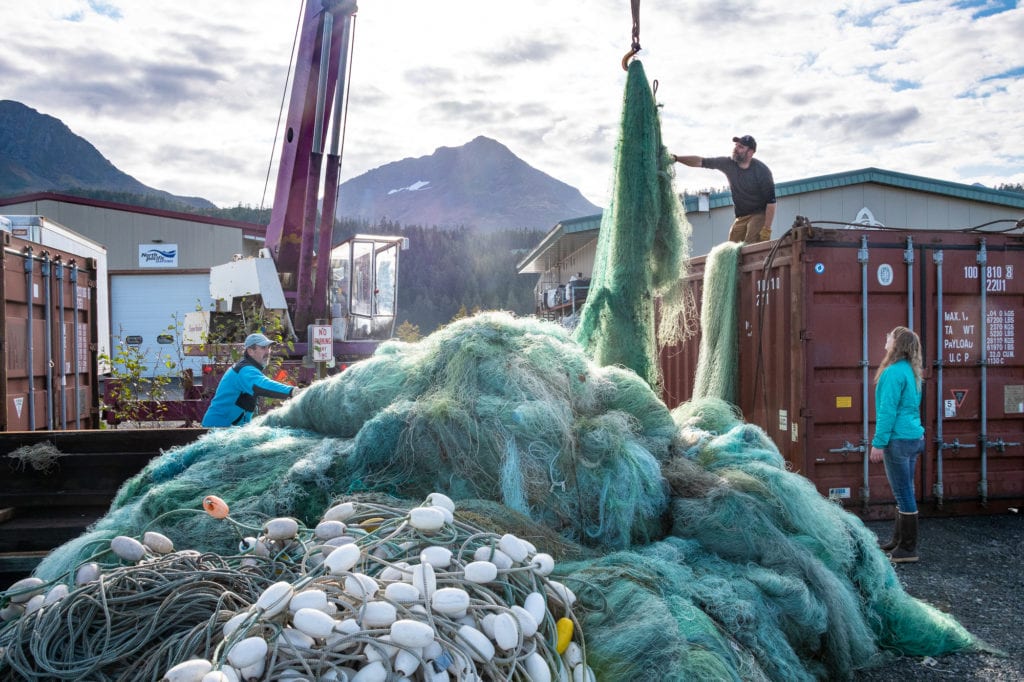
The Copper River Watershed Project has gathered 21,000 pounds of fishing net for recycling since the beginning of July. However, the program has been hampered by donations of difficult-to-handle loose netting.
Netting stuffed into garbage bags or held together with pieces of scrap line can easily be loaded into a shipping container for recycling, CRWP Operations Manager Shae Bowman said. However, a large pile of loose netting that had accumulated behind the harbor master’s office quickly became tangled, defying attempts to move it by crane.
“I thought my gillnettin’ days were over for the year!” quipped Gerald McCune as he attempted to load an outsized clump of netting into a shipping container.
Donated netting should also be cleaned and stripped of all cork line and lead line, Bowman said. Donations can be made at the harbor master’s office or at the baler facility on Whitshed Road.
“If it’s not bundled, it gets super difficult to deal with,” Bowman said. “We can only maintain our recycling program if people follow the rules.”
As plastic prices have declined, selling netting hasn’t brought the CRWP much revenue. A June sale of 7,100 pounds of plastic to Skagit River Steel & Recycling netted only $88.23. However, donations of transportation by Alaska Marine Lines and labor by the city of Cordova mean that the CRWP doesn’t have to recycle at a loss.
After the netting is sold, it’s chopped up, melted and used to make hard plastic items like toys and bicycle cleats, Bowman said.





